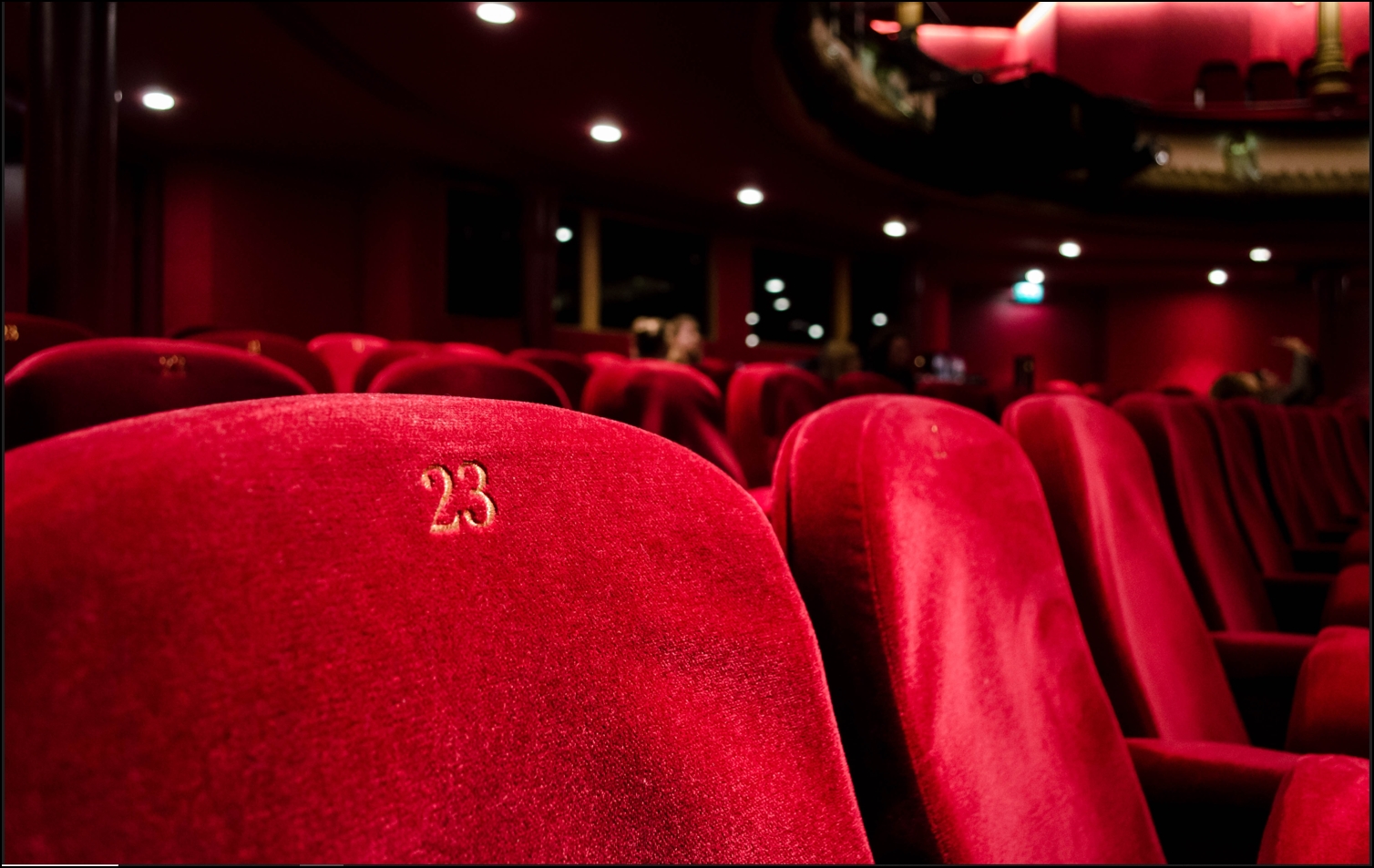By Jeff Dunn
A new art form graced San Francisco’s Presidio Theatre one night before moving on to Chicago.
For lack of a better word, I would call it an conversalonera—a collaborative work that interweaves related themes via three “acts”—a 30-minute semi-scripted “conversation,” a 25-minute salon, and a 35-minute opera. In less expert hands, such a concept might result in merely a time-filling hodgepodge.
” … Before It All Goes Dark is worthy of many more performances …”
Not so in this case! Five brilliant collaborators have created a structure that allows for a compelling theme—art deprivation as the result of the Holocaust—to resonate to the maximum.
Joined by many others on the production end, the chief collaborators on the creation side were Mina Miller, founder of Music of Remembrance; Jake Heggie, composer; Howard Reich, former arts critic with the Chicago Tribune; and Gene Scheer, librettist.
The “interview” act began with Miller prompting first Heggie and then Reich to tell their stories: Heggie about receiving an open-ended commission from Miller, searching for a subject, and finally contacting Reich; Reich informing Heggie of a series of articles he had written 20 years previously about The Jewish Museum in Prague trying to find relatives of Holocaust victim Emil Freund. Freund’s valuable art collection had been seized by the Nazis and sequestered by the Czech Communist government.
Only some time after democracy was restored in the Czech Republic was restitution to descendants of original owners being considered. The Jewish Museum asked Reich to see if Freund’s two sisters had established family lines in the U.S. They had indeed. Reich found one, Gerald “Mac” McDonald, an ailing PTSD vet who had no idea that he had a grand uncle who was Jewish or an art collector. Reich traveled with McDonald to Prague to see and obtain Freund’s legacy. McDonald’s story became the substance of Scheer’s libretto.
It was Miller’s idea to make the second “act” a salon-style performance of instrumental works written by composers murdered in the Holocaust. The “salon” was a projected intimation of Freund’s pre-war apartment with its impressive display of art. The music was instrumental—one duet each by David Beigelman and Robert Dauber; and two duets, a piano solo, and a trio by Erwin Schulhoff. The Beigelman piece, the song Mak tsu di eygelekh (“Close your little eyes”), a Schindler’s List-like lament played by clarinet and piano, was the most moving of the fine set.
The salon morphed seamlessly into McDonald’s apartment for the beginning of the opera, accompanied by a small but effective ensemble (flute, clarinet, string quartet, piano) conducted by Joseph Mechavich. Bass-baritone Ryan McKinny did a superb job of characterizing the tattooed, burly, angry, and dying vet sparring with his neighbor Sally (effective mezzo Megan Marino) about why he must head off to Europe despite his condition. Heggie wrote a great riff-leitmotiv for McDonald, inspired, as he told me, by the imagined bass line of a heavy-metal band.
Later, in the Jewish Museum, the short opera climaxes when curator Misha (also Marino) opens a figurative door to a gallery where the Freund collection has been assembled for McDonald’s examination. The first sight of Freund’s collection blows McDonald away—and the music and lighting do the same to the audience. The sound is suffused with Heggie’s version of a lament tune passed around the chamber orchestra. Masterpieces of the Freund collection zoom out in projection one after the other. Finally, an array of searing gold spotlights rotates slowly from the stage into the auditorium, flooding the audience.
McDonald empathizes with Freund’s tragedy: “Emil, Uncle Emil, these are the last things you saw … before it all went dark.” Scheer then wonderfully conflates McDonald’s parents’ neglect, where he acted up to try to be “visible” to them, with Freund’s need for his collection to be “chosen, seen, and loved.”
Unfortunately for McDonald, the Czech government ruled that the best of the Freund collection could not leave the country. He returns home to Chicago at the end, with a cheap painting he bought at a Prague art fair. He’s not a millionaire, but he has been touched by beauty and the revelation of his ancestry.
This was the second of four performances sponsored by Music of Remembrance, an organization dedicated to “honoring the resilience of all people excluded or persecuted for their faith, ethnicity, gender or sexuality.” The first was in Seattle May 19th; the third and fourth will be in Chicago May 25th and 26th.
I believe Before It All Goes Dark is worthy of many more performances, and would be effective even if actors play the roles of Heggie and Reich. I only wish that the program notes would include more about the ultimate fate of the Freund collection. The current notes give the impression that McDonald was Freund’s sole heir, but two children and two cousins survive and should have some claim to compensation.
-30-
 ASR’s Classical Music Section Editor Jeff Dunn is a retired educator and project manager who’s been writing music and theater reviews for Bay Area and national journals since 1995. He is a member of the San Francisco Bay Area Theatre Critics Circle and the National Association of Composers, USA. His musical Castle Happy (co-author John Freed), about Marion Davies and W.R. Hearst, received a festival production at the Altarena Theater in 2017. His opera, Finding Medusa, with librettist Madeline Puccioni, was completed in January 2023. Jeff has won prizes for his photography, and is also a judge for the Northern California Council of Camera Clubs.
ASR’s Classical Music Section Editor Jeff Dunn is a retired educator and project manager who’s been writing music and theater reviews for Bay Area and national journals since 1995. He is a member of the San Francisco Bay Area Theatre Critics Circle and the National Association of Composers, USA. His musical Castle Happy (co-author John Freed), about Marion Davies and W.R. Hearst, received a festival production at the Altarena Theater in 2017. His opera, Finding Medusa, with librettist Madeline Puccioni, was completed in January 2023. Jeff has won prizes for his photography, and is also a judge for the Northern California Council of Camera Clubs.
| Production | Before It All Goes Dark |
|---|---|
| Based on Chicago Tribune articles by | Howard Reich |
| Director | Erich Parce |
| Producing Company | Music of Remembrance |
| Production Dates | May 19 (Seattle), May 22 (SF), May 25-6 (Chicago) |
| Production Address (SF) | Presidio Theatre 99 Moraga Ave, SF, CA 94129 |
| Website | www.musicofremembrance.org |
| Telephone | (206) 365-7770 |
| Tickets | $40-$85 |
| Reviewer Score | Max in each category is 5/5 |
| Overall | 4.5/5 |
| Performance | 4/5 |
| Music | 4.5/5 |
| Libretto | 4.5/5 |
| Stagecraft | 4.5/5 |
| Aisle Seat Review Pick? | YES! |

